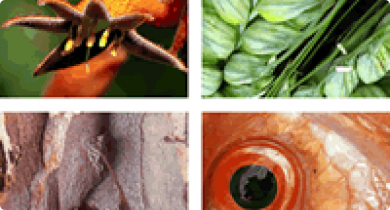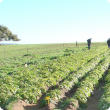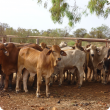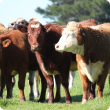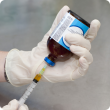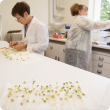Biosecurity
Biosecurity is fundamental for safeguarding our valuable agricultural resources against the threat and impacts of pests, weeds and diseases (pests).
Biosecurity is the management of the risk of animal and plant pests and diseases entering, emerging, establishing or spreading in Western Australia, to protect our economy, environment and the community.
To protect Western Australian agricultural industries from pests the Department of Agriculture and Food, Western Australia:
- Works with stakeholders to identify and manage biosecurity risks.
- Develops legislation.
- Establishes import controls.
- Conducts inspections.
- Provides quarantine services as required.
To find out more about what we do to protect agricultural production and export opportunities within the State please search our website.
Articles
Filter by search
Filter by topic
- (-) Remove Food, export & investment filter Food, export & investment
- Pests, weeds & diseases (6) Apply Pests, weeds & diseases filter
- Livestock biosecurity (4) Apply Livestock biosecurity filter
- Livestock & animals (4) Apply Livestock & animals filter
- Livestock management (3) Apply Livestock management filter
- Plant biosecurity (3) Apply Plant biosecurity filter
- Livestock health & diseases (3) Apply Livestock health & diseases filter
- Export services (3) Apply Export services filter
- Crops (3) Apply Crops filter
- Diseases (3) Apply Diseases filter
- Pastures (2) Apply Pastures filter
- Sheep (2) Apply Sheep filter
- Livestock disease surveillance (2) Apply Livestock disease surveillance filter
- Production & postharvest (2) Apply Production & postharvest filter
- Livestock species (2) Apply Livestock species filter
- Grains (2) Apply Grains filter
- Agricultural exports (2) Apply Agricultural exports filter
- Chemicals (2) Apply Chemicals filter
- Control methods (2) Apply Control methods filter
- Residues in livestock (1) Apply Residues in livestock filter
- Sowing (1) Apply Sowing filter
- Veterinary chemicals (1) Apply Veterinary chemicals filter
- Preventing residues (1) Apply Preventing residues filter
- Vegetables (1) Apply Vegetables filter
- Testing (1) Apply Testing filter
- Management & reproduction (1) Apply Management & reproduction filter
- Dairy cattle (1) Apply Dairy cattle filter
- Beef cattle (1) Apply Beef cattle filter
- Horticulture (1) Apply Horticulture filter
- Investment attraction (1) Apply Investment attraction filter
- Postharvest (1) Apply Postharvest filter
- Potatoes (1) Apply Potatoes filter

